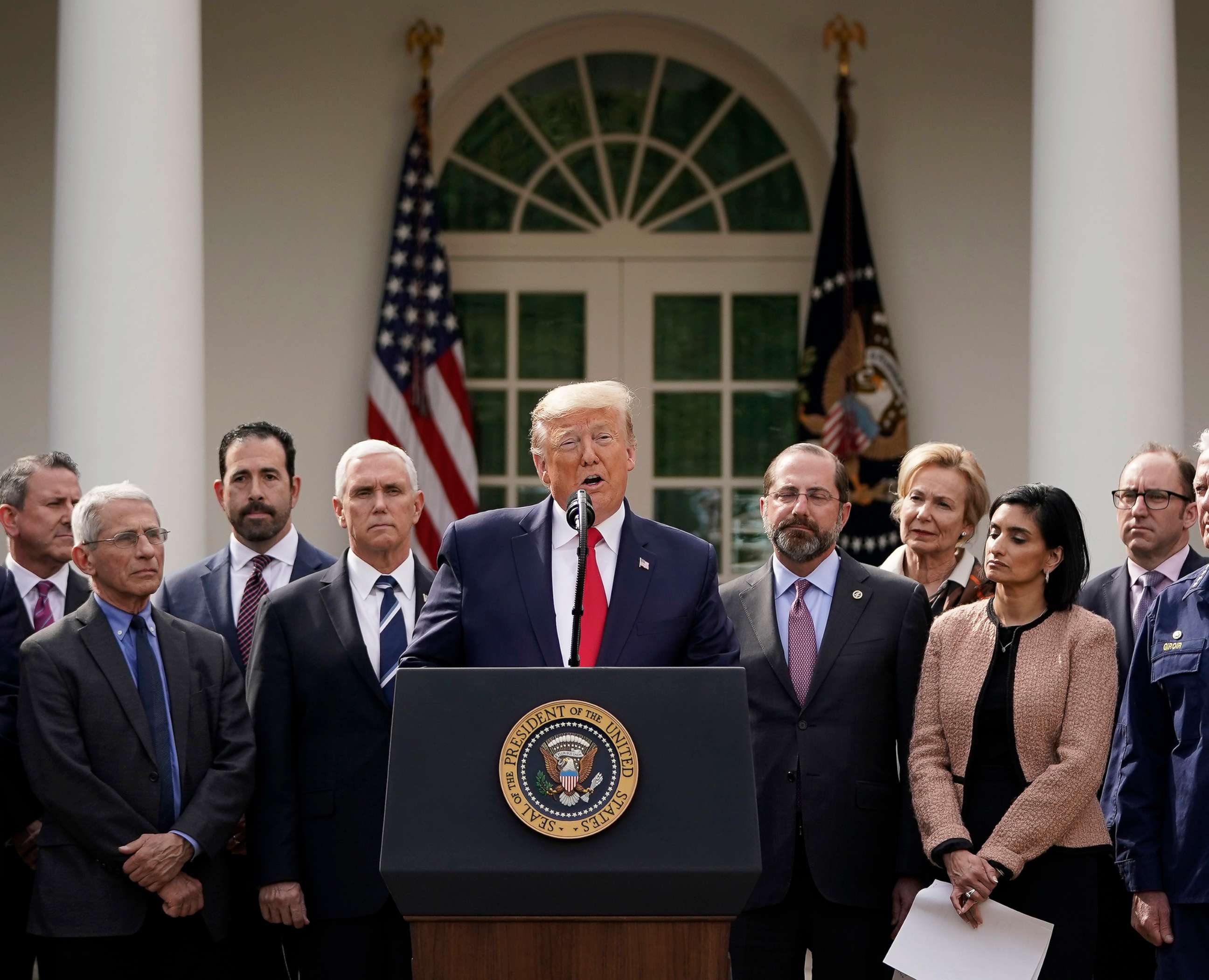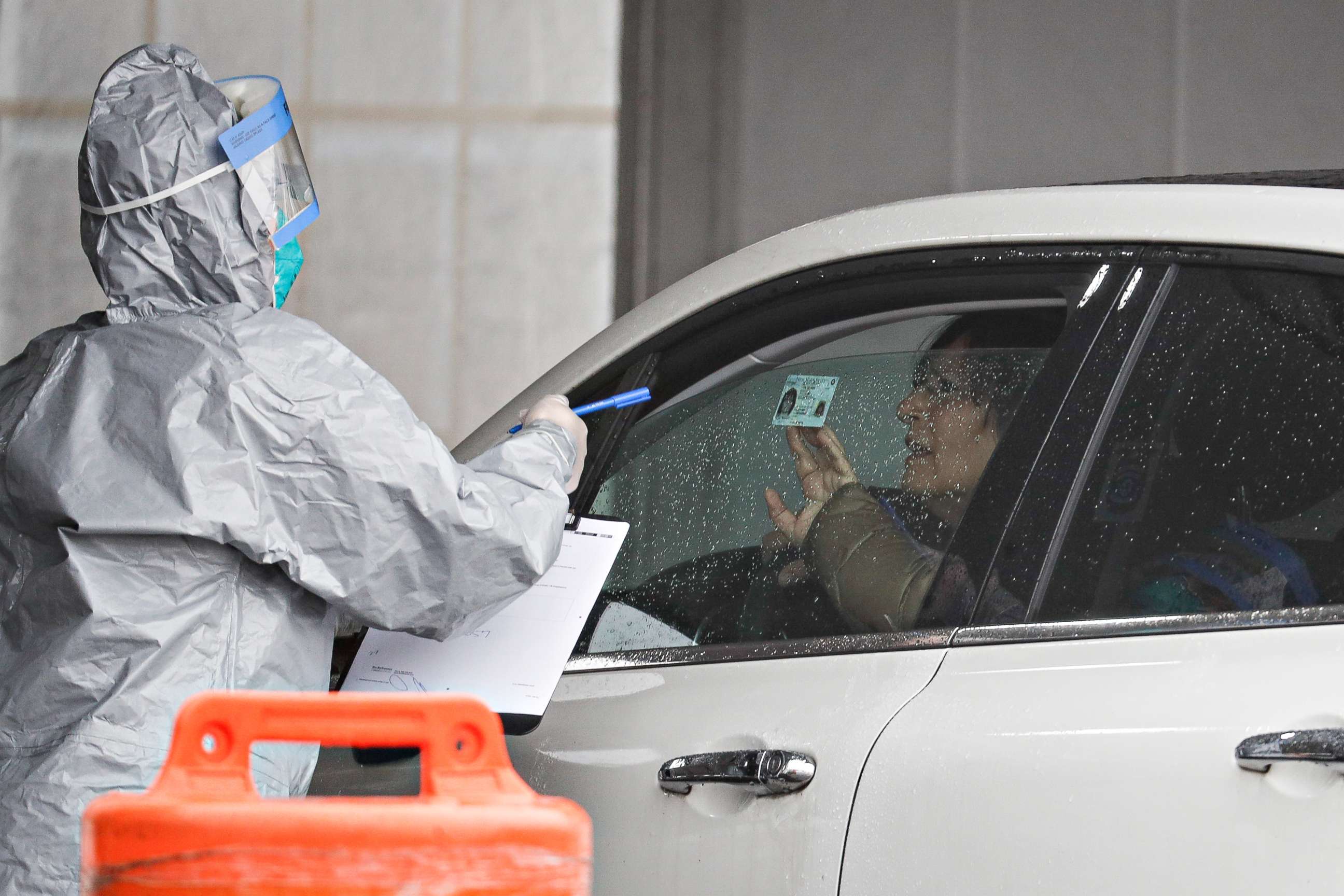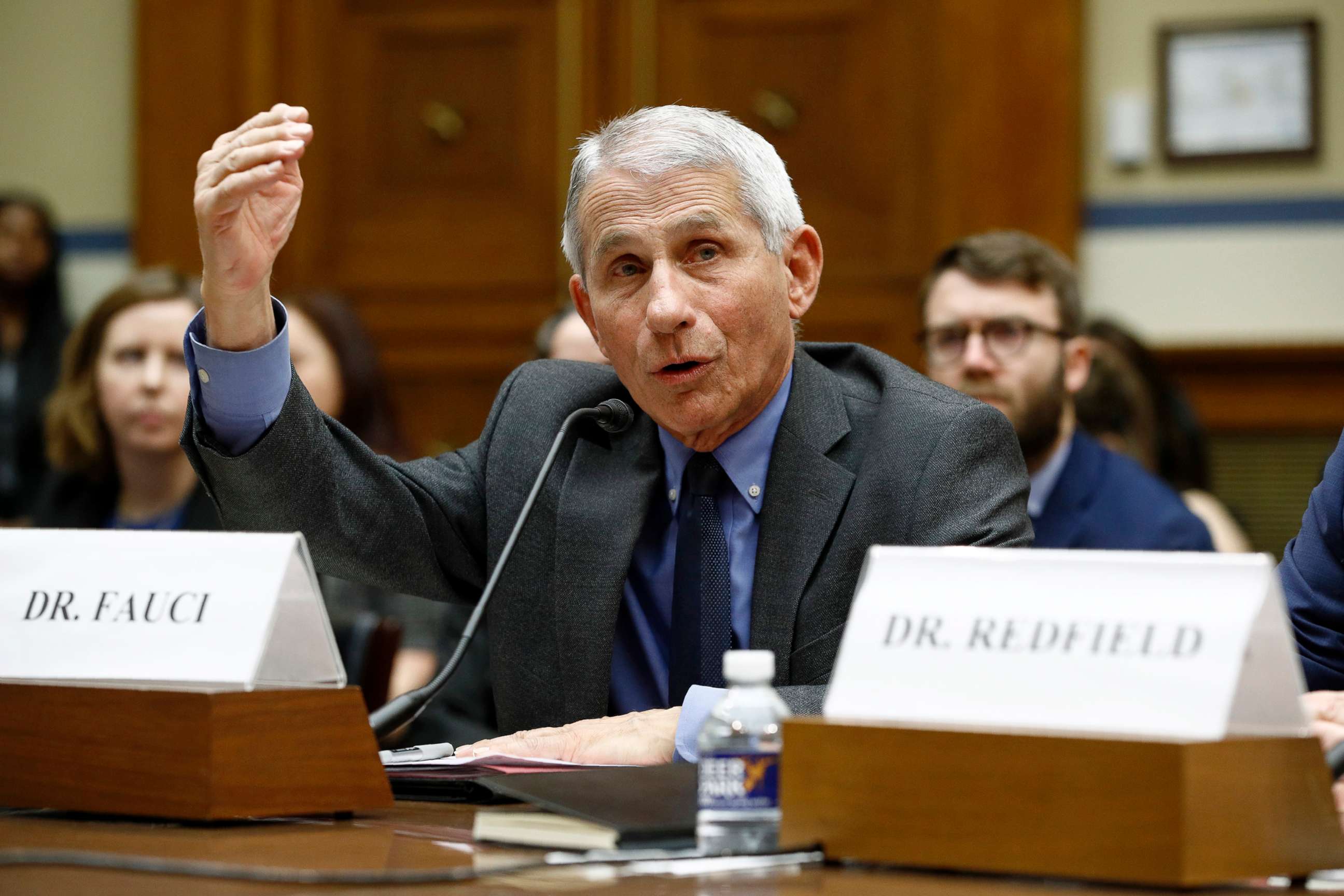Trump says he's not responsible for testing problems: 3 things to know
Unlike South Korea, the U.S. relies heavily on the private sector.
President Donald Trump on Friday declared he isn’t responsible for America’s shockingly slow response in finding out how many U.S. residents are infected with the novel coronavirus.
The blame though is likely to fall to him all the same, with the federal government still unable to say or even estimate how many Americans might be infected despite the nation being among the world’s wealthiest with a sophistical health care system.

So what happened exactly? Here are three things to know:
US efforts fumbled early, while South Korea set up free drive-thru testing
It didn’t take long for the U.S. to develop its own test for novel coronavirus after the World Health Organization on Jan. 30 declared it a “public health emergency of international concern.” By Feb. 6, the Centers for Disease Control and Prevention announced it would ship the first test kits to U.S. public labs.
But less than a week later, the CDC acknowledged there was a problem with the kits and that it was working to correct the issue. The agency also urged restrictions on who would get the tests – limiting access to people who had traveled to areas with a known outbreak and were exhibiting symptoms.
Even with high risk factors, patients with symptoms couldn’t obtain the tests at first through their doctors and private diagnostic labs as they would other medical tests. They had to be referred to their local public health department.
Meanwhile, the virus was spreading fast through Washington state.
“I’m hearing from people who are sick, who want to get tested (and) are not being told where to go,” said Sen. Patty Murray, D-Wash., on March 3.
By the time the CDC announced that its public health labs had the capacity to conduct 75,000 tests, South Korea’s government-run health system moved fast with China – the initial epicenter of the outbreak – being so geographically close. South Korea quickly ramped up to more than 10,000 tests per day – even setting up drive-thru clinics in which patients could get tested for free without getting out of their cars.

As of Friday, the CDC estimated about 13,600 tests have been run through agency and public health labs, and acknowledges it has no estimate of how many tests have been run by private labs. That’s compared to some 250,000 tests done in South Korea.
Universal testing? ‘We’re not set up for that’
Unlike South Korea, the U.S. relies on public health labs designed to catch new strains of seasonal flu, but most diagnostic testing is left in the hands of private labs and doctors.
CDC Director Robert Redfield acknowledged in congressional testimony it was a mistake not to get industry on board sooner with a single nationwide response.
“I can tell you having lived through the last eight weeks, I would have loved the private sector to be fully engaged eight weeks ago,” Redfield said in early March.
It wasn’t until the week of March 9 – more than five weeks after the World Health Organization’s January warning – that LabCorp and Quest Diagnostics, two major commercial diagnostic laboratories, announced they would offer tests if a doctor ordered them.
The government also loosened the rules for hospitals and other private labs to develop their own tests without prior federal approval. One private company, IDT, developed a system to rapidly conduct tests and announced plans to ship some 5 million per week.

Dr. Anthony Fauci, head of the National Institute for Allergies and Infectious Diseases, said the U.S. health system just isn't designed for universal testing.
“The system is not geared to what we need right now – what you’re asking for,” Fauci told a House committee on Thursday. “That is a failing. It’s a failing. Let’s admit it.”
He added: “The idea of anybody getting (a test) easily the way people in other countries are doing it, we’re not set up for that. Do I think we should be? Yes. We’re not.”
That assessment seemed to be what Trump was referring to on Friday when he refused to accept blame for the slow rollout of tests. In recent days, the president has falsely insisted that anyone who wants a test could get one and called the process “very smooth” – despite significant evidence to the contrary.
On Friday, the administration named Brett Giroir, the assistant secretary of health, in charge of testing, in what appeared to be a nod to public frustration. Trump also on Friday said he wanted to partner with industry to create drive-thru testing for Americans, including a new Google website that would tell people where to go.
“I don't take responsibility at all because we were given a set of circumstances and we were given rules, regulations, and specifications from a different time,” he told reporters. “It wasn't meant for this kind of an event with the kind of numbers that we're talking about.”
True, testing isn’t everything. But with a virus 10x more lethal than the flu, knowledge is power
While there is no drug available yet to treat the virus (and a vaccine to prevent it is at least a year away), people with positive results or known exposure can quarantine themselves to limit the spread to others.
Health officials also continue to learn about how different people are responding to the virus. What they know so far is alarming. In Italy, for example, the government on Thursday announced some 2,300 new cases and 196 new deaths in just 24 hours – adding significantly to its existing 12,400 cases and 827 deaths.
U.S. officials are hoping that if people know they have the virus and actively work to keep it from spreading, that gives health care workers time to prepare. And that in turn minimizes the chance that hospitals become overwhelmed by a sudden spike in patients suffering from respiratory distress.
“This is a really serious problem that we have to take seriously,” Fauci said, noting the flu has a death rate of .1 percent.
Novel coronavirus “has a mortality of ten times that,” Fauci told Congress. “And that’s the reason why I want to emphasize we have to stay ahead of the game in preventing this.”




